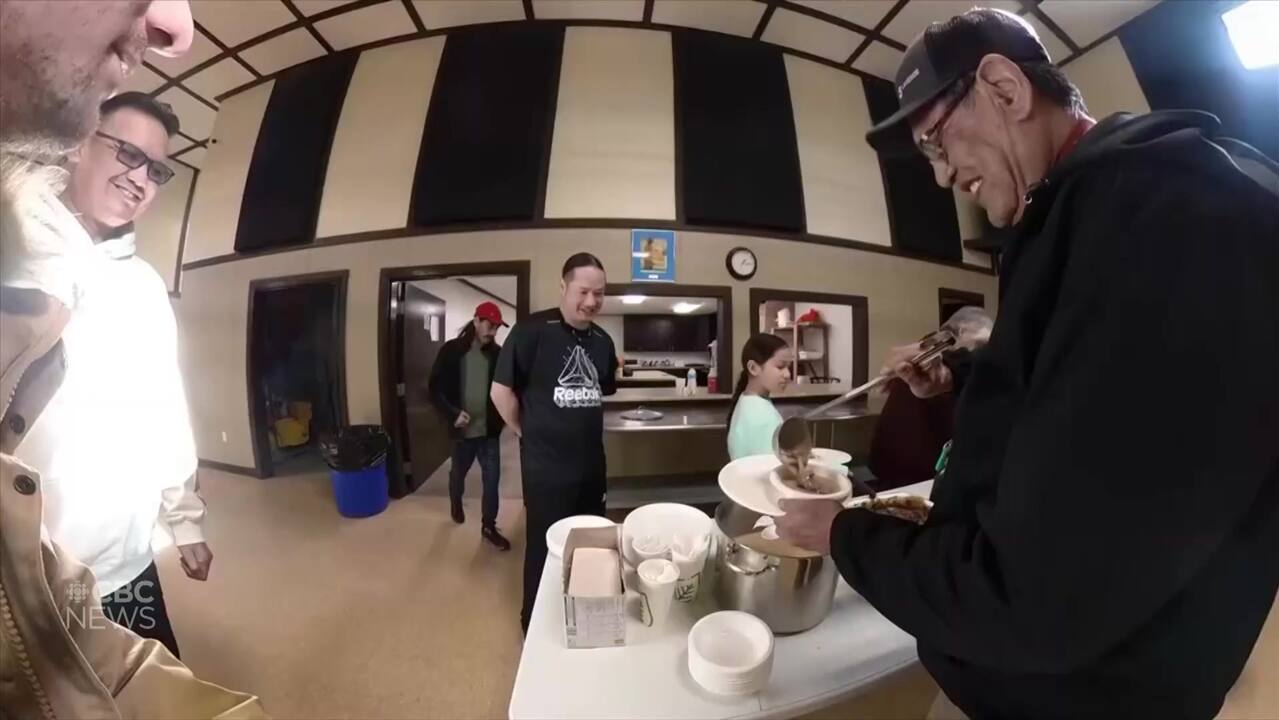U.S. YouTuber comes to Northern Sask. to learn Cree, surprises elders

Cree elders were surprised and confused when a foreigner started talking to them in their language.
Arieh Smith, 33, can speak around 50 languages and has over six million followers on his YouTube channel. He came to Loon Lake in northern Saskatchewan to learn the Cree language, promote it and experience the culture of the Cree people.
“I’ve done this now with Indigenous communities across North and South America as well,” Arieh Smith, who hails from New York, said. “But this time, in particular, was really special because I had Patrick there to kind of guide me and take me around,” he said.
Patrick Mitsuing is the president of Powwow Times, and he orchestrated the visit from Feb. 15-18.
“We had this language program that we’re we just launched called repeataftermecree.com where we teach 52 weeks of Cree. And I was wondering, how do I promote this, how could I get it out there?” Mitsuing said.
Patrick Mitsuing said it has been amazing to have a famous YouTuber promote Cree to his audience of millions.
He said he found Smith’s channel and saw that he spoke all kinds of languages including some Indigenous ones, so he sent him a message on YouTube, explaining what a few days in the community would look like.
“About a week later I got a reply through my email saying that he was interested in my concept of what I was trying to do and then it went really quickly after that,” Mitsuing said.
“It was amazing to have a guy like that be willing to come in, learn our language, and promote it to his audience of millions of people that he has following him in terms of language,” he said.
Smith said that Indigenous people across North America whose languages are endangered, and in some cases dying, really appreciate his work.
“The elders at first were kind of like ‘who is this the weirdo with the camera?’ … And then when I started speaking Cree, they were kind of like, oh OK, that’s pretty cool,” Smith said.
“And it was an emotional connection to a people and a community whom I would never have encountered,” he said.

Mitsuing said Smith and community members had conversations about how to promote the language and reach younger generations.
“When you do it through platforms like YouTube or TikTok or Facebook, this is a way to connect with them where they’re at. And so this whole video idea was about connecting our younger generation to inspire them to speak our Cree language,” Mitsuing said.
He said oftentimes people make up excuses like the language is too hard or that they don’t have enough resources, but Smith shows that it’s possible.
“The comments that I’ve seen from his videos, from his shorts and reels that he did from this content. I see a lot of the young Indigenous, not just young but even older crowds saying man, if he could learn, I could learn, man, if he’s doing it, I could do it.”
Smith not only spoke the Cree language but also took part in activities like dog sledding, eating traditional food and experiencing a sweat lodge.

“It [dog sledding] was an adrenaline rush. It was super cool to be able to do that in Cree, like just sitting on the dog sled, screaming ‘tansi’, you feel like you’re in like 14th-century Cree territory. It’s great,” he said.
“It’s just very gratifying to be able to be able to do what I do while at the same time helping preserve their language and culture in whatever small way.”




